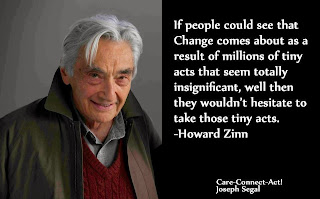I am going to break this into a three week long series of posts. The answer to the question is quite complex while also pretty simple. History is everything that has gone before us. Easy answer, right? The problem is in the next questions. Why study history? How do you study history? So much for the easy part. So, let's tackle the first question which is what is History?
 |
| Herodotus-Father of History |
 I then move to a quote from Sam Wineburg's outstanding book, Historical Thinking.
I then move to a quote from Sam Wineburg's outstanding book, Historical Thinking.
1 "For the narcissist sees the
world-both the past and the present-in his own image. Mature historical
understanding teaches us to do the opposite: to go beyond our own image, to go
beyond our brief life, and to go beyond the fleeting moment in human history
into which we have been born. History educates (“leads outward” in the Latin)
in the deepest sense. Of the subjects in the secular curriculum, it is the best
at teaching those virtues once reserved for theology—humility in the fact of
our limited ability to know, and awe in the face of the expanse of history."
I I then use a quote by John Lewis Gaddis.
1 "History 'dethrones' us from
our original position at the center of the universe. It requires us to see
ourselves as part of a much larger human story. When we view the world this
way, we come face-to-face with our own smallness, our own insignificance."
 The two quotes really dive into the concept of history. It tends to shock them a bit because they see themselves as the center of their universe. History sees nothing as the center, least of all a student. For more quotes by historians on this subject, I refer you to my former professor's website, Steve Kreis and "The History Guide" and his page on the subject.
The two quotes really dive into the concept of history. It tends to shock them a bit because they see themselves as the center of their universe. History sees nothing as the center, least of all a student. For more quotes by historians on this subject, I refer you to my former professor's website, Steve Kreis and "The History Guide" and his page on the subject.
It really does come down to the fact that we are relatively insignificant to the history we study. Yet, like Howard Zinn says in this photo, we are all agents of change through our insignificant acts. I find history to be a paradox that thrills and captivates me. I can only hope my students can begin to approach this paradox. In order to do that I need to engage them with history. We will continue with that topic in next week's History According to Jim.


No comments:
Post a Comment